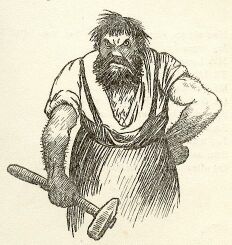Related Research Articles
Mackiewicz is a Polish surname derived from the name Maciek, a diminutive of Maciej (Matthias). There are two archaic feminine forms: Mackiewiczowa and Mackiewiczówna.
Stanek is a Polish-language gender-neutral surname. Obsolete feminine forms are Stankowa (married) and Stankówna (maiden). It originated as a diminutive of the given name Stanisław.
Vaitkus is the masculine form of a Lithuanian family name. Its feminine forms are: Vaitkienė and Vaitkutė. It is derived from the personal name Vaitkus, from Polish Wojtek, which is a diminutive of the Polish given name Wojciech.
Lewicki is a Polish-language surname. The surname may have several origins. It can be a patronymic surname from a diminutive of the Polish given name Lew "Lion" or the nickname Lewek "Left-handed". It can also be derived from either of the towns called Lewiczyn or, as a Jewish surname, from the meaning "of the Levites".
Wilczek is a surname of Polish-language origin. A diminutive form of Wilk, it means "little wolf" in Polish. It is used by 9,000–10,000 people in Poland, with the greatest number found in Silesia, Podhale, the Warsaw region, Lublin and Łańcut. The surname may refer to:
Holub is a Czech, Slovak, Ukrainian, and Belarusian surname. It means pigeon or dove. It is a cognate of Gołąb and Golub.
Maćkowiak is a Polish surname. It is derived from the given name Maciek, a diminutive of Maciej. The surname may refer to:
Pawlik is a surname. It is a diminutive of the Polish given name Paweł ("Paul"). Pawlik is related to the Czech surname Pavlík.
Wilk is a surname of English and Polish-language origin.
Kowalik is a Polish surname. The word has two literal meanings: a bird of nuthatch genus or a diminutive of Kowal, meaning "smith". Notable people with the surname include:
Kulik is a Slavic, Jewish and German surname. The Czech-language form, Kulík, is a diminutive of "Mikuláš" ("Nicholas") via "Mikulík". The Russian is both "Kulik" and "Kullik". The Ukrainian is "Kulik" and sometimes "Kulyk". In English it has at times been transliterated as "Kulick".
Urbas is a surname of primarily Eastern European extraction. The Polish-language form is derived from the diminutive of the given name Urban. Notable people with this surname include:
Rzepka is a Polish surname and given name.
Klich is a surname derived from the diminutive form of the given name Kliment (Clement). It may refer to:

Kováčik or Kovacik is a surname, a diminutive form of Kováč. Notable people with the surname include:
Piechota is a Polish-language surname. Two possible etymologies are suggested. One is the actual noun piechota in its various historical meanings. Another is a derivative of the diminutive form "Piech" from given names Pietr, Piotr, etc.
Kaja or Kája is a given name and surname.
Petrusewicz is a Polish gender-neutral surname of Eash-Slavic origin. Archaic feminine forms: Petrusewiczowna, Petrusewiczowa. It should be distinguished from the spelling Pietrusiewicz which conforms to the Polish phonology, which is usually a by-name in the noble Polish clan Wysoczański. It is a patronymic surname derived from the East Slavic given name Petrus', a diminutive of Piotr/Petro/Piatro (Peter).
Groszek is a Polish and Yiddish surname. The word is a diminutive of grosz, a Polish lesser coin. Therefore, the surname may be an occupational surname for a person dealing with money or a nickname for a wealthy or greedy person.
Leykin, Leikin, Lejkin, Leykind are surnames of Ashkenazi Jewish origin. It is a Slavic-language-infliuenced matronymic surname derived from the Yiddish diminutive form "Leyka" of the given name Leah. Notable people with this surname include:
